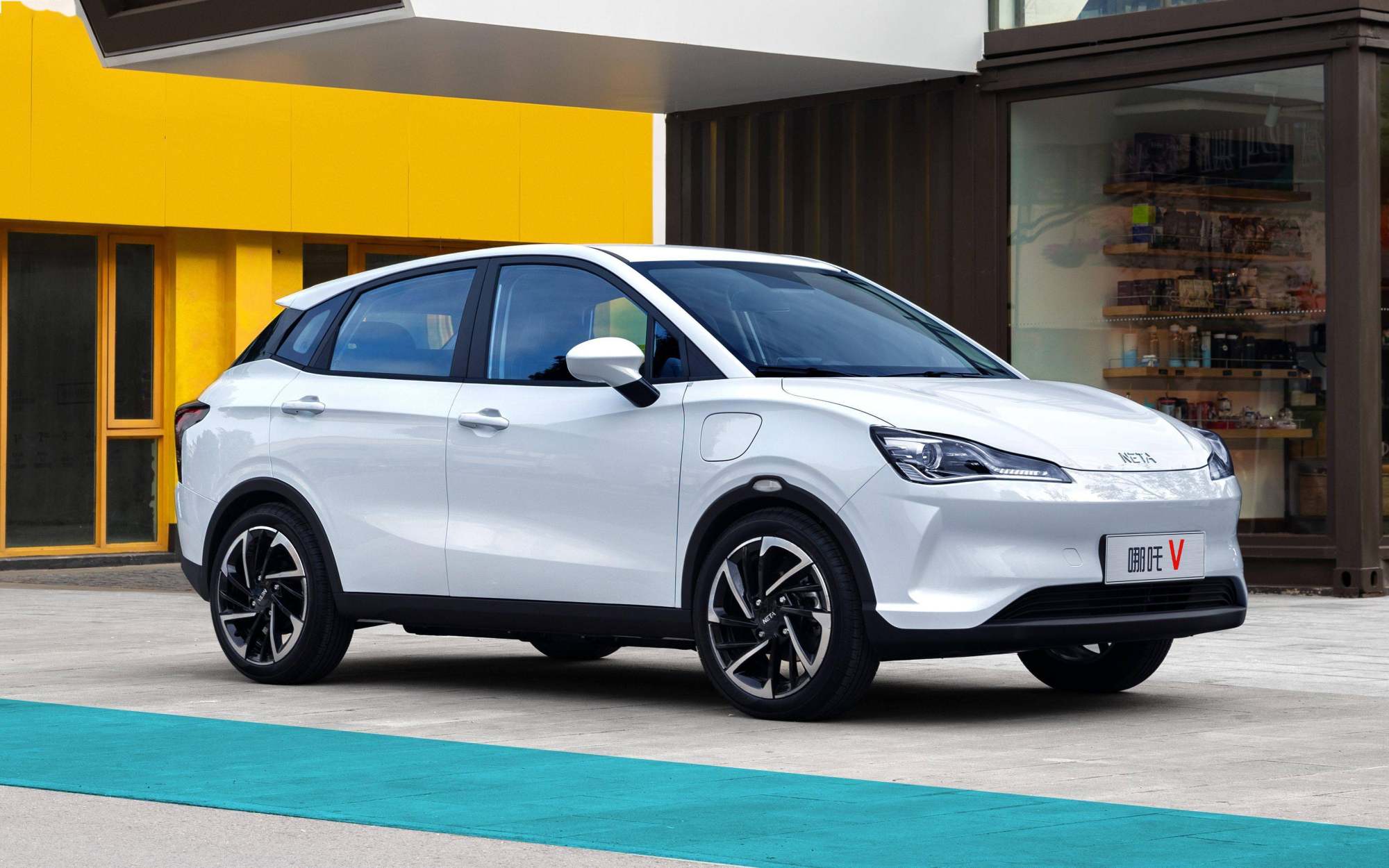
Chinese EV start-up Hozon ramps up exports as it cashes in on popularity of Neta SUV in Southeast Asia
- Shanghai-based Hozon followed up exports of 3,600 cars in March with another batch of 4,000 units recently, according to a statement on its WeChat account
- Hozon’s Neta V SUV had a 16.5 per cent market share in the segment in Thailand during the first four months of this year, according to Thai news portal AutoLife
Hozon’s export of the Neta-branded EVs follows a shipment of 3,600 units to Southeast Asia in late March, the Shanghai-based start-up said in a statement on its WeChat account on Tuesday.
Hozon did not reveal the destination for the 4,000 EVs, but said in the statement that Thailand had become its major target market as part of its global drive. It is also preparing to make inroads into European markets, the statement added.
“The [growing] export volumes represent a big leap forward for Chinese EV start-ups because their vehicles are gaining popularity in overseas markets like Thailand,” said Phate Zhang, the founder of Shanghai-based EV data provider CnEVpost. “It is advisable for Chinese EV makers to sell their products in Southeast Asia where Chinese-made electric cars are more affordable than foreign rivals.”

Hozon’s Neta V sport-utility vehicle (SUV) had a 16.5 per cent market share in the segment in Thailand during the first four months this year, according to data from AutoLife, a Thai news portal.
Hozon assembles affordable EVs in mainland China, with most of its vehicles priced between 70,000 yuan (US$9,834) and 200,000 yuan.
Neta’s Chinese name is Nezha, the god of protection.
BYD overtakes LG as world’s No 2 EV battery supplier as sales gather speed
Hozon is seeking to raise US$1 billion via a Hong Kong IPO as soon as this month, Bloomberg reported last week. The company declined to respond to the Post’s request for comment on its fundraising plan.
The carmaker delivered 13,029 units in mainland China in May, an increase of 18.4 per cent year on year and 17.6 per cent higher than April.
The company’s overall sales from January to May in China reached 50,285 units, up 0.6 per cent from the same period in 2022, according to data compiled by CnEVPost.
Hozon started work on a factory in Bangkok in March, where right-hand drive EVs will be built for the Thai market.
Chinese EV builders are facing headwinds from a slowing domestic market and growing competition, while consumers have become cautious about spending on big-ticket items like cars.
Chinese EV battery firms Eve Energy to build plant in Southeast Asia
More than a dozen carmakers from BYD, the world’s largest EV assembler, to Honda’s Chinese joint venture, are ramping up efforts to sell their vehicles overseas, which has helped China overtake Japan as the world’s largest car exporter.
Chinese carmakers exported a total of 1.07 million vehicles – including petrol and battery-powered cars – in the first quarter of this year, beating Japan’s exports of 1.047 million units during the same period, according to the China Business Journal.
EVs are the key driving force behind China’s growing overseas shipments, Li Xueyong, general manager of Jetour, an EV subsidiary of Chery Automobile, told the Post in an interview in April.

